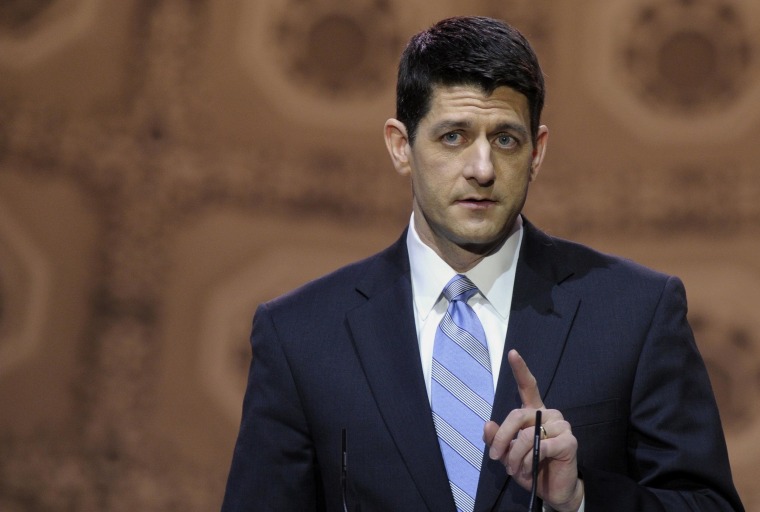Rep. Paul Ryan said Thursday that his comments about the "culture" of inner cities were “inarticulate.”
“After reading the transcript of yesterday morning’s interview, it is clear that I was inarticulate about the point I was trying to make,” he said in a statement about his remarks to radio host Bill Bennett earlier this week. “I was not implicating the culture of one community—but of society as a whole. We have allowed our society to isolate or quarantine the poor rather than integrate people into our communities.”
Ryan, R-Wisc., came under fire for telling Bennett that there is “a tailspin of culture, in our inner cities in particular, of men not working and just generations of men not even thinking about working or learning the value and the culture of work.” The House budget chief and former vice presidential candidate said those environments have “a real culture problem.”
In his statement Thursday, Ryan said that he meant to make a “broader point” about changing the status quo regarding poverty.
Here’s the complete statement:
“After reading the transcript of yesterday morning’s interview, it is clear that I was inarticulate about the point I was trying to make. I was not implicating the culture of one community—but of society as a whole. We have allowed our society to isolate or quarantine the poor rather than integrate people into our communities. The predictable result has been multi-generational poverty and little opportunity. I also believe the government’s response has inadvertently created a poverty trap that builds barriers to work. A stable, good-paying job is the best bridge out of poverty.“The broader point I was trying to make is that we cannot settle for this status quo and that government and families have to do more and rethink our approach to fighting poverty. I have witnessed amazing people fighting against great odds with impressive success in poor communities. We can learn so much from them, and that is where this conversation should begin.”
NBC's Sarah B. Boxer contributed to this report.
